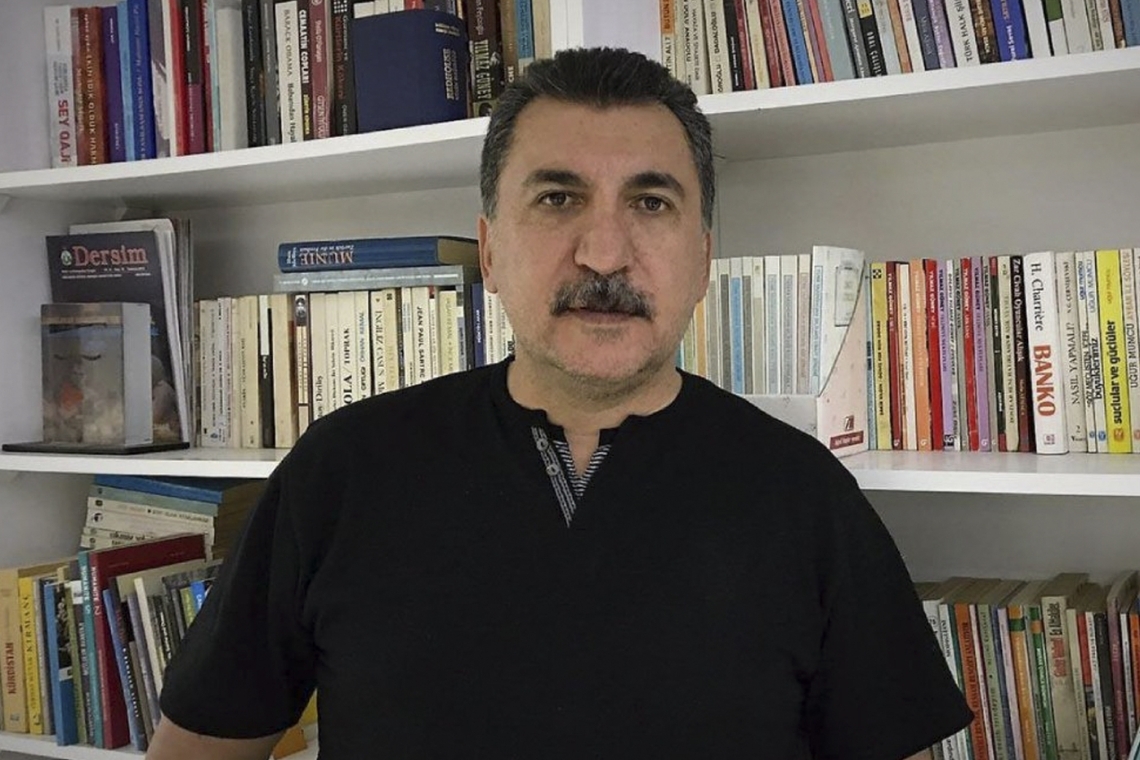Deniz Tekin
A court in southeastern Turkey has once again postponed proceedings against exiled artist Ferhat Tunç, whose arrest warrant has remained unexecuted for five years. The Diyarbakır 5th High Criminal Court adjourned the case to July, ruling to continue waiting for the enforcement of the outstanding warrant.
Tunç, a prominent Kurdish musician and activist, is being tried in absentia on charges of “membership in a terrorist organization” and “terrorist propaganda,” and faces up to 20 years in prison if convicted. He is currently living abroad and did not attend the 15th hearing of the trial. His lawyer, Fatma Hopikoğlu, was also absent, citing an excuse accepted by the court.
The presiding judge noted that the arrest warrant issued against Tunç five years ago remains unexecuted. The prosecution requested that the trial continue to await enforcement of the warrant. The court ruled to maintain the arrest order and to formally inquire with relevant authorities about its status.
The next hearing is scheduled for July 8, 2025.
Background
Ferhat Tunç was detained on Jan. 14, 2019, upon arriving at Istanbul’s Atatürk Airport from Germany, as part of an investigation launched by the Diyarbakır Chief Public Prosecutor’s Office. He was released after giving a statement at the Bakırköy Courthouse.
Later that year, prosecutors charged him with “membership in a terrorist organization” and “making terrorist propaganda,” requesting a sentence of up to 20 years. The indictment was accepted by the Diyarbakır 5th High Criminal Court.
The charges are based in part on Tunç’s participation in the Democratic Society Congress (DTK), a Kurdish-focused civil society platform that Turkish authorities have increasingly targeted in recent years, alleging ties to the outlawed Kurdistan Workers’ Party (PKK). The indictment describes Tunç as having acted as an “institutional delegate” within the DTK and having attended several of its meetings.
In addition, prosecutors cited Tunç’s social media posts criticizing Turkey’s 2018 military operation in Afrin, a Kurdish-held region of northern Syria, as evidence of criminal activity.
The indictment alleges that Tunç’s posts aimed to “create the perception that Kurdish citizens are being killed, oppressed, exploited, and subjected to isolation by the state,” and accuses him of attempting to “legitimize terrorist activities, incite hatred toward the state, and recruit citizens into the ranks of the terrorist organization.”
Turkey has faced repeated criticism from international human rights organizations for using broad anti-terrorism laws to silence dissenting voices, especially among Kurdish politicians, activists, and artists.



